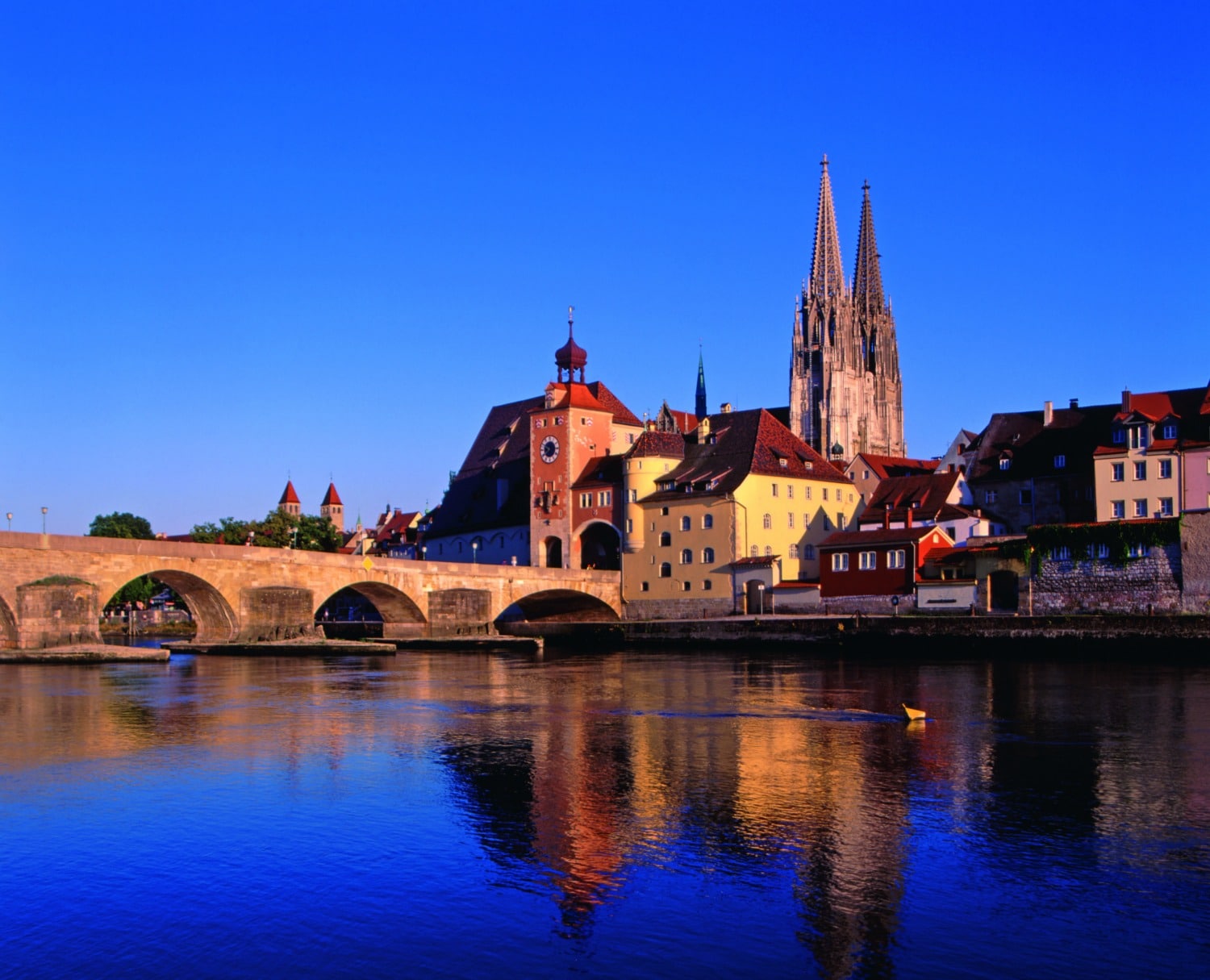Arguably Germany’s most famous federal state, Bavaria’s image is that of men in Lederhosen, cowbells, fairytale castles, and picture-perfect mountain scenery. Yet, this is only a tiny snippet and travelers who care to go beyond the cliché will discover so much more. Bavaria is made up of four distinct regions, each unique in identity and culture, and the cities are equally diverse.
From the annual Oktoberfest in cosmopolitan Munich to the mountain castle Neuschwanstein, much has been written about Germany’s largest state. In just two years, in 2020, the Passion Play in the tiny village of Oberammergau will be staged again and tickets are already on sale.
In our upcoming TravelSquire series about Bavaria, we will highlight many brilliant things to see and do. But in keeping with the theme of discovering hidden gems let’s start with five things you might not already know about Bavaria.
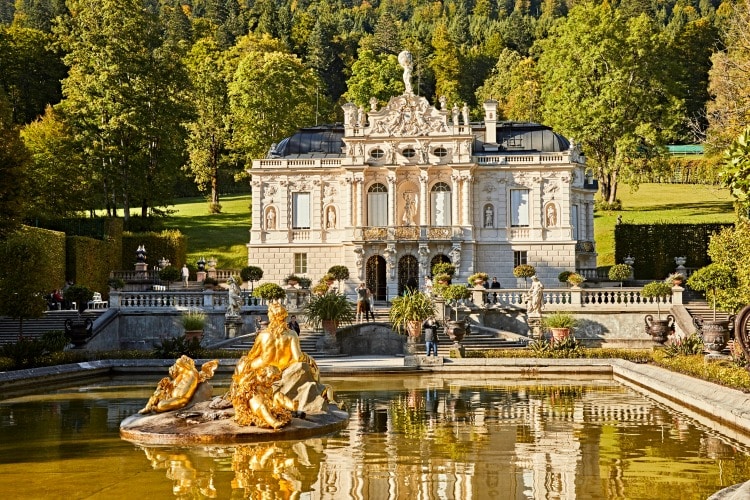
1. It’s all about the bottle
German wine is synonymous with the Riesling, mostly from the Moselle and Rhinegau regions, but not so in northern Bavaria. Here “Frankenwein” (Franconia wine) is a brand and quality of its own. The regional tipples of choice are Silvaner (the locals’ favorite), Bacchus or Müller-Thurgau – wines so special they even have their own signature vessel. The Bocksbeutel is a type of wine bottle with the form of a flattened ellipsoid and virtually unseen outside of Bavaria which makes it a great souvenir. Produced from more than 6,000 hectares of vineyards, Franconian wines are mostly dry and of the white variety while the red wines are highly sought-after specialties. Bavarians like to enjoy their Franconian wines close to home and very few get exported, but wine connoisseurs can travel some 30 miles on the “Mid-Franconian Bocksbeutel Road” to cherish every single drop.
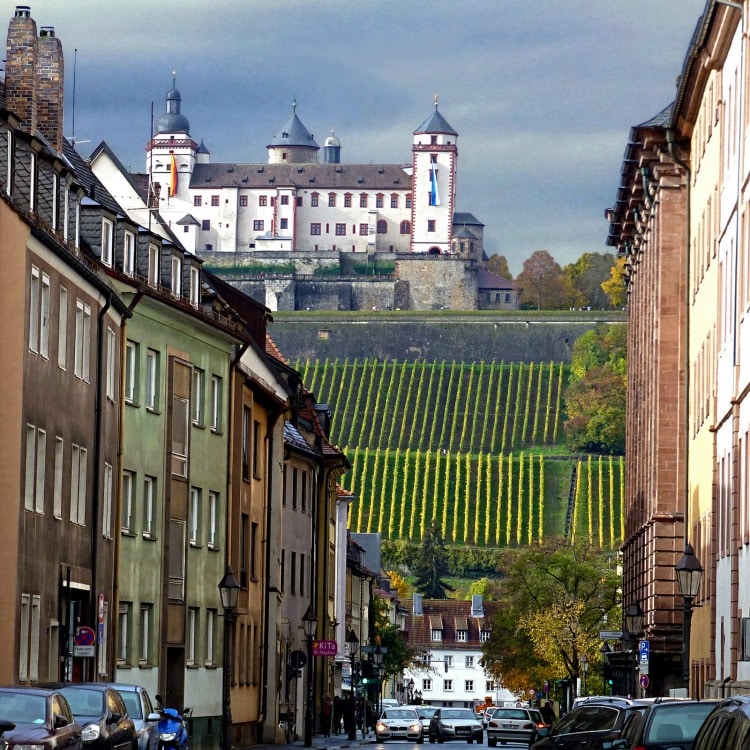
2. Where is Napoleon’s Suitcase?
Traveling the Danube River between the Black Forest and the Black Sea is one of the most popular river cruise options in Europe. With stunning views aplenty, few places on the 1,771-mile journey can rival the beauty of the Danube Gorge near Weltenburg where approximately 200,000 years ago, a branch of the primeval Danube cut its way through the limestone, creating the modern-day riverbed. As a result of nature’s forces, high cliffs tower on both sides of the river while down below the stream narrows to less than 350 feet wide. Many of the dramatic rock formations have fantastical names such as Bishop’s Mitre, Beehive (riddled with holes), Petrified Virgin, and Napoleon’s Suitcase (which needs a bit of imagination to see). A popular stop along the gorge is Weltenberg Abbey where local dark beer, brewed from an old Benedictine recipe, is served in one of the most beautiful beer gardens in Bavaria. The whole area has been protected since 1840 when King Ludwig I of Bavaria declared it a nature monument. Note, the area of the Danube Gorge near Weltenburg cannot be reached by a cruise ship. We recommend visiting from the Unesco World Heritage city Regensburg nearby.
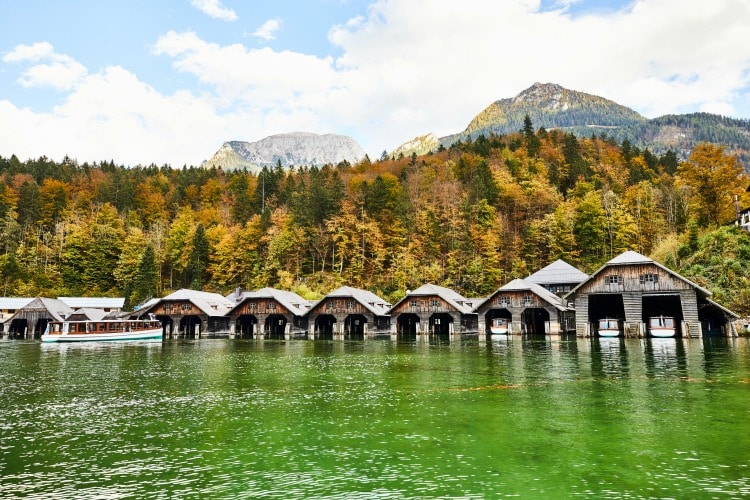
3. Top of Germany
Bavaria isn’t just Germany’s biggest state, it also claims the country’s highest mountain – the Zugspitze. Rising 9,718 feet near Garmisch-Partenkirchen, the views from the Top of Germany, as the locals like to call their mountain, stretch into four countries and there are more than 400 peaks. Often overshadowed by neighboring winter destinations, the Bavarian Alps offer excellent skiing, skating and sledding facilities. In summer, the mountain ranges welcome many hikers and there are cable cars for the less energetic. Up high, the country’s highest beer garden on top of the Zugspitze awaits – a great place to chill in any season! In 2004, Germany’s highest mountain was thrust into the international limelight when cunning thieves used a helicopter to successfully kidnap the maypole in a century-old tradition which sees neighboring communities trying to steal the symbol of spring.
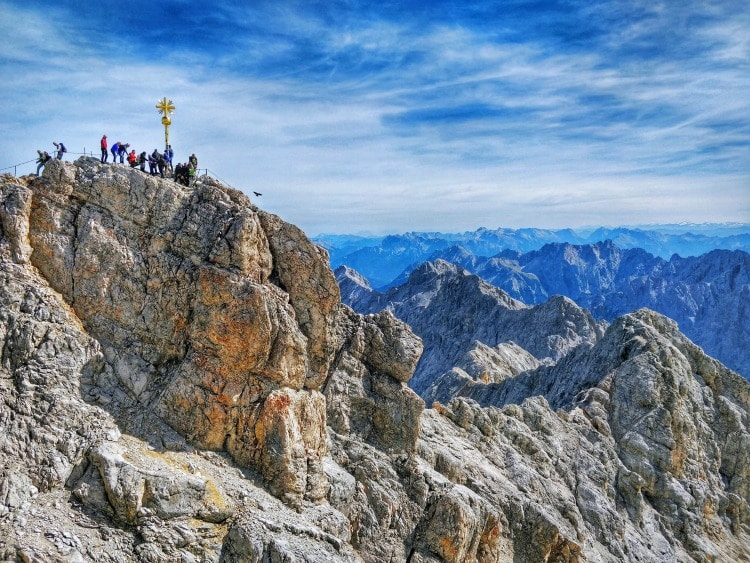
4. Fresh water galore
Where there are mountains, there are mountain lakes and not just those. Bavaria counts an astonishing 200 natural lakes. While there are plenty close to Munich for the locals to have a cold dip on a warm summer day, Bavaria also borders Lake Constance, Europe’s third largest lake. At the Bodensee, as it’s called in Germany, sea dogs can swim, sail and windsurf – and travel between the lakes in the Allgäu region along a well-marked set of hiking and cycling trails. The jewel in the region’s crown is Lindau, an exceptionally well-preserved medieval town, located on a small island on the northern edge of Lake Constance. Its century-old buildings, narrow cobble-stoned alleyways, and historical squares charm hundreds of thousands of visitors each year. But Lindau’s most photographed icon is the Bavarian Lion standing on a pedestal guarding the harbor entrance, right opposite the lighthouse, the only one in Bavaria.
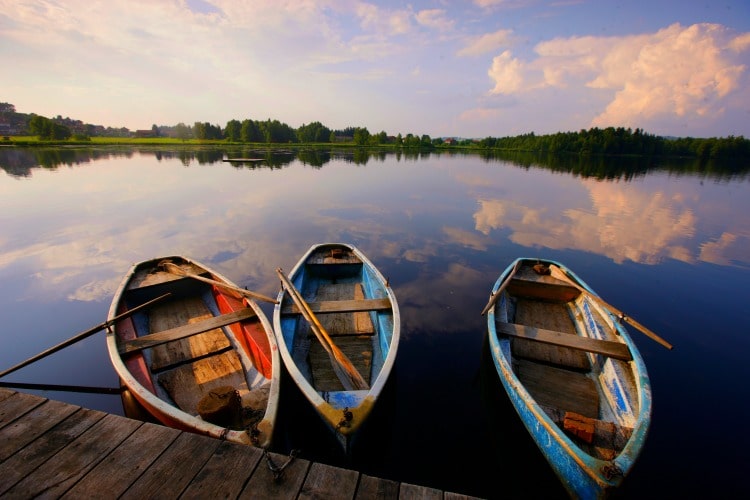
5. Jingle Bells
The tempting aromas of mulled wine, sweet roasted almonds, charcoaled sausages, and gingerbread create an unforgettable atmosphere in the towns of Germany in the lead up to Christmas. Bavaria is home to perhaps the most famous Christmas market in the world, the Nuremberg Christkindlesmarkt, which has delighted young and old for over 400 years. More than two million visitors dive into this winter wonderland every year. The Munich Christmas market dates back even further to 1310. Nationwide, from the end of November, colorful lights go up in historical town centers, handmade arts and crafts are sold at wooden stalls and the cold temperatures are best faced with a mug of mulled wine. Many Bavarian markets follow century-old traditions though modern times can’t be ignored: organic produce, recycling, and sustainability are all leaving their mark.
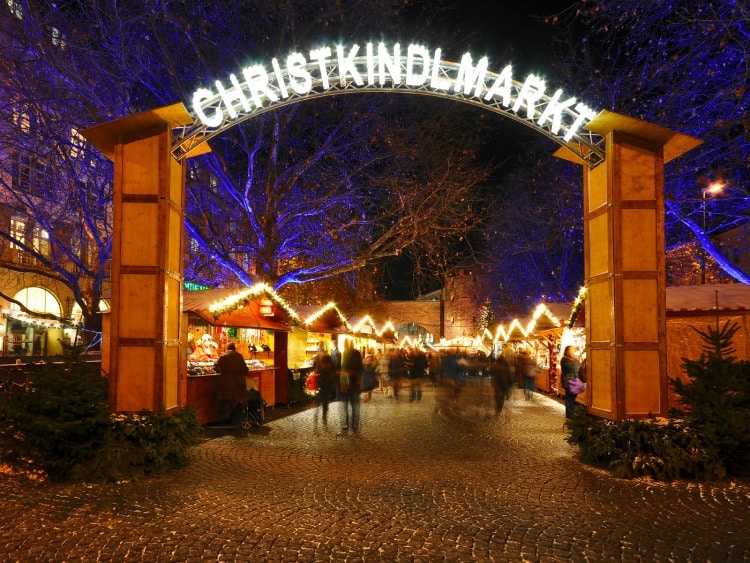
Find Out More: www.bavaria.by
Also:
www.altoetting.de
www.bamberg.info
www.bmw-welt.com
www.bayreuth-tourismus.de
www.chiemsee-alpenland.de
www.erding-tourist.de
www.fuessen.de
www.gapa.de
www.kaethe-wohlfahrt.com
www.simply-munich.com
www.tourismus.nuernberg.de
www.regensburg.us.com
www.rothenburg.de/tourismus
www.schloesser.bayern.de

